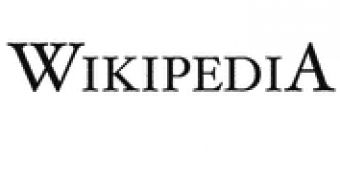Last week, the National Portrait Gallery in London sent a Wikipedia user a letter threatening legal action after he uploaded 3,300 photos of paintings housed at the state-owned gallery. While the legality of the claims is debatable, Wikipedia has now issued its own statement backing the user and accusing the gallery of forgetting its main mission, which should be educating the public and making the works available for more.
The problems started when Wikipedia volunteer Derrick Coetzee downloaded some 3,300 photos of the works from the gallery's website and then uploaded them to Wikipedia. The NPG, however, has copyrighted the photos, even though the paintings themselves are under public domain, something that can be done under English law. US law doesn't allow for photos of public domain art works to be copyrighted, and both the volunteer and the Wikipedia servers are located in the US. This raises some interesting questions about how local law can affect websites located in other parts of the world.
After the NPG threatened to sue, Wikipedia has laid out its view on the matter. “The fact that a publicly funded institution sent a threatening letter to a volunteer working to improve a non-profit encyclopedia may strike you as odd. After all, the National Portrait Gallery was founded in 1856, with the stated aim of using portraits ‘to promote appreciation and understanding of the men and women who have made and are making British history and culture.’ It seems obvious that a public benefit organization and a volunteer community promoting free access to education and culture should be allies rather than adversaries,” Erik Moeller, deputy director at Wikimedia Foundation, writes.
He goes on to say that many institutions have, in fact, contributed and worked together with Wikipedia to provide people all over the world access to photos of works of art they might otherwise not have had the chance to see. He also believes that the actions of the gallery are counterintuitive and that the institution is overstepping its attributions, assuming a de facto ownership of the paintings by restricting access to them online and controlling how the real ones can be viewed.
NPG has responded by saying that it doesn't restrict access to the paintings, but that it needs the revenue from licensing the works in order to fund itself. The gallery has reportedly spent £1 million on the digitization process and generated £339,000 in the last year from licensing to books or publications.

 14 DAY TRIAL //
14 DAY TRIAL //